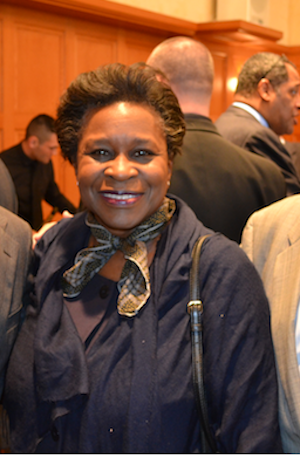Flirtatious juror leads to conviction reversal

Hon. Priscilla Hall sat on the Appellate Division panel
Improper inquiry of a juror suspected of flirting with women connected to two defendants in a robbery trial compelled the Brooklyn Appellate Division to reverse the defendant’s conviction.
A Queens jury convicted defendant Dewayne Henry and a co-defendant of robbery, criminal possession of a weapon and related charges in September 2012. During a trial recess, a witness informed Henry’s defense counsel that a juror had been observed talking to Henry’s wife.
According to the wife, the juror allegedly told her “the evidence speaks for itself, or they got themsel[ves] into this situation.”